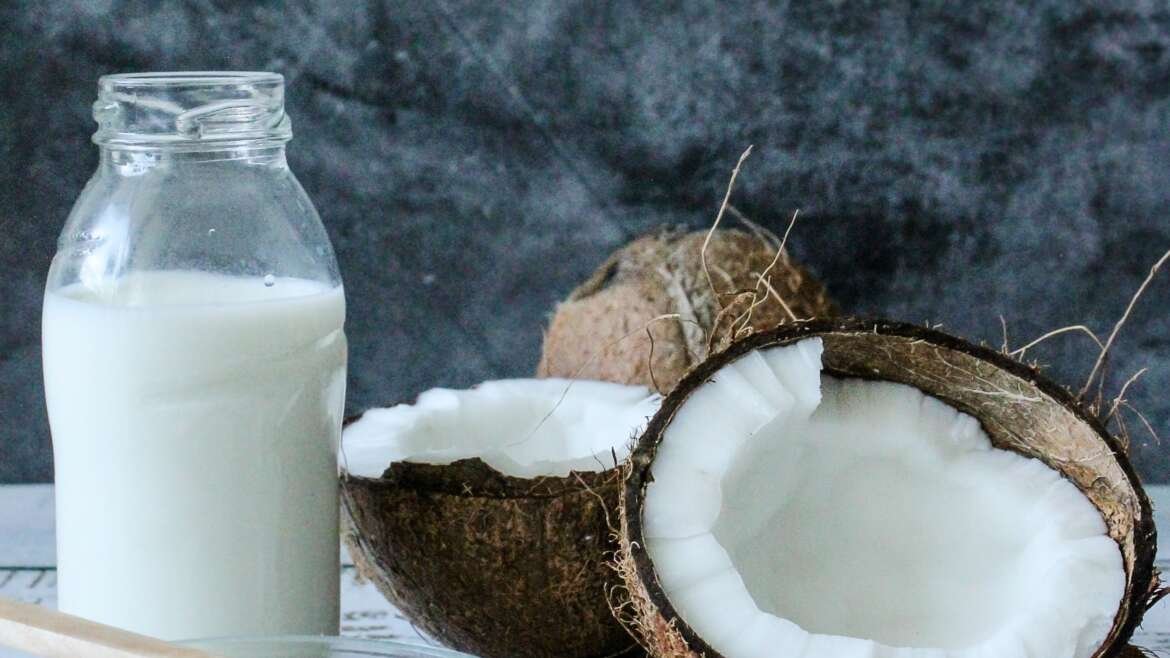

In recent years, coconut milk has acquired popularity not only for its creamy texture and delectable flavour, but also for its impressive array of health benefits. Coconut milk, which is derived from the interior of mature coconuts, is a versatile ingredient that imparts a distinctive flavour to a variety of dishes and has become a staple in many households. This article will examine the nutritional profile of coconut milk and highlight its possible health benefits.
Coconut milk is well-known for its high concentration of healthy lipids. While it does contain saturated fats, the preponderance of these fats are medium-chain triglycerides (MCTs). MCTs are readily digested and metabolised by the body, making them a quick energy source. MCTs, as opposed to long-chain fatty acids, are less likely to be deposited as body fat, making coconut milk a suitable option for ketogenic and low-carb diets.
Vitamins and Minerals: Coconut milk also contains a variety of vitamins and minerals necessary for optimal health maintenance. These consist of:
Iron: Coconut milk contains iron, which is essential for red blood cell production, oxygen transportation, and overall energy production.
Magnesium is essential for maintaining normal muscle and nerve function, promoting a healthy immune system, and regulating blood pressure, as it is involved in more than 300 biochemical reactions in the body.
Coconut milk is an excellent source of potassium, an electrolyte that promotes healthy blood pressure, heart and muscle function, and fluid balance.
Copper is necessary for the formation of red blood cells, the production of collagen, and the maintenance of healthy bones and connective tissues.
Manganese is an antioxidant that aids in the metabolism of carbohydrates, cholesterol, and amino acids.
Vitamin C: Although coconut milk is not particularly rich in vitamin C, it still contains a modest level of this essential vitamin, which is necessary for immune function, collagen synthesis, and antioxidant activity.
The healthful fats in coconut milk can aid digestion and promote satiety, thereby assisting with weight management. Coconut milk’s medium-chain triglycerides are readily absorbed by the body and can provide a fast source of energy. In addition, it has been demonstrated that these fats promote the growth of beneficial gut flora, which contributes to the maintenance of a healthy digestive system.
Additionally, the medium-chain triglycerides in coconut milk can aid in weight loss. When consumed as part of a balanced diet, they have been found to increase satiety and decrease overall calorie intake, potentially contributing to weight loss or weight maintenance.
Despite its high saturated fat content, studies indicate that coconut milk may have positive effects on cardiac health. Coconut milk contains medium-chain fatty acids, such as lauric acid, which have been shown to increase levels of high-density lipoprotein (HDL) cholesterol, also known as “good” cholesterol. High HDL cholesterol levels are associated with a decreased risk of cardiovascular disease.
Coconut milk can be a beneficial addition to one’s diet, but it should be consumed in moderation due to its high calorie content. If you are monitoring your calorie intake, choose light or reduced-fat options.
Coconut milk is a tasty and nutrient-dense alternative to conventional dairy milk. It is a valuable addition to a balanced diet due to its high content of healthful fats, essential vitamins, and minerals. Coconut milk has a variety of potential benefits, including aiding digestion and weight management and promoting cardiac health. Incorporate this creamy delicacy into your diet in moderation and enjoy the healthful benefits it provides.


Add Comment